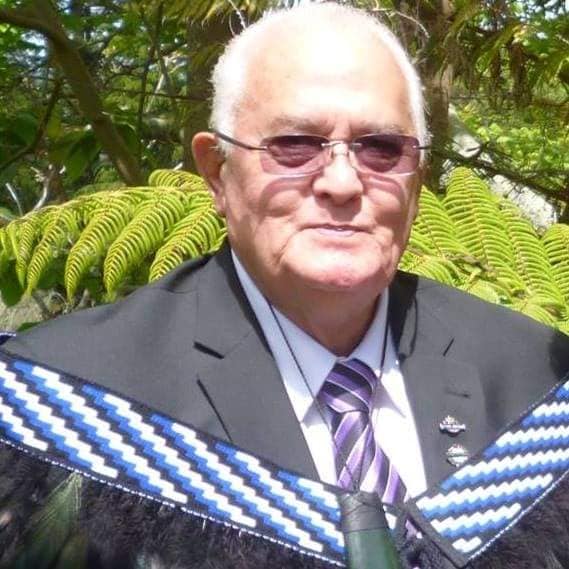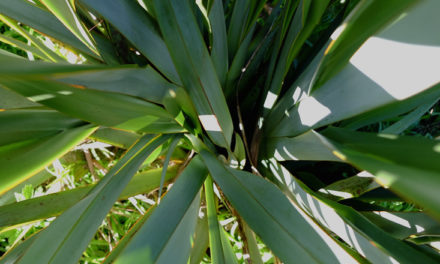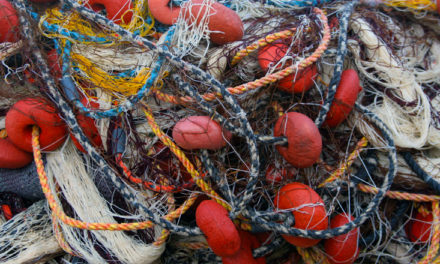Light Of The World
This month I bring not so much a whakataukī (proverb) as a liturgy. It is commonly heard at tangi (customary funeral): “Te hunga mate ki te hunga mate, te hunga ora ki te hunga ora. Apiti hono, tatai hono.” [The dead to the dead, the living to the living, the lines are joined]. This phrase is repeated in increasingly separated ways in sentences that accentuate and affirm the distance between the dead and living. Like for like, the lines are joined, never to intertwine or intermingle. More than superstition that protects the living, this is an affirmation of ongoing life. The repeated phrasing usually concludes with, “Tatou e tu ana ki te ao…” [We who remain standing in the world of light…] and it is left hanging before the deceased is encouraged to go (if they had not yet) “haere, haere, haere atu ra”. Separated, the lines are joined. It is finished.
Part of our grieving process… is to invest ourselves into making the world a better place for those who come after us.
We who remain in the light of day, in the light of life, are left to get on with things. Part of our grieving process, our lament, is to invest ourselves into making the world a better place for those who come after us, having learned from the life of the dearly departed—their mistakes and successes.
My dad, Barrie James Tui Matenga, passed away a week ago (Apr 28). His tangi began the day after and concluded three days later with a midday burial to the sound of The Last Post bugle and a sole warbling tūī in the trees. A fitting combination. What struck me most about the tributes we heard during the tangi was that they weren’t about accomplishments but dad’s impact on the lives of the people who grieved his passing; family, friends, church members, people in the community. This was no self-made man, but a self-less man—or one who tried his best to be.
There were plenty of funny stories told at his expense as he lay there in the open coffin under my korowai (ceremonial feather cloak, pictured with him wearing it). He gifted it to me for my doctoral graduation, and it usually hangs on some panels behind me as my Zoom backdrop, so it was borrowed back for this occasion.
He was a man at his worst alone. He delighted himself in being around and encouraging others, myself included. And for all his idiosyncrasies, the testimonies revealed he succeeded in being a light, even at times when he was the one in humble need. The most often said remembrance of him was his unceasing testimony of faith in Jesus Christ. I am in no doubt of his eternal destiny.
While 2020 seemed to be the year of frustration, with lock-downs, 2021 will be marked as a year of grief. We’re not yet halfway through the year and the global death toll related to COVID-19 (1.8 million+) has already exceeded 2020 (1.4 million). These numbers, of course, remain approximate as India’s death toll is likely to be significantly under-reported due to the ‘hidden’ crisis affecting great swathes of rural India countryside right now. The collective grief being experienced around the world from disease, wars, oppressive regimes, and increasing costs of living is overwhelming… if you’re brave enough to expose yourself to it.
Has God orchestrated all this death as judgement?… “yes… and no”.
The Sunday prior to dad’s passing, I spoke at a Mission Leaders Forum convened by the Overseas Ministries Study Center at Princeton Seminary. The title of my presentation, the last of the forum, was: “‘Post’-Pandemic Possibilities for Positive Missions Practice”. The transcript can be found in the articles section of this website, or click here to download directly. The opening speaker was my former Prof., Christopher J. H. Wright, who brought a Biblical perspective on the pandemic.
Has God orchestrated all this death as judgement? Chris’ response, somewhat surprisingly, was “yes… and no”. He said yes, “in the sense that we are reaping the consequences of human folly and evil actions within the natural world, and creation fights back.” So the pandemic can legitimately be seen as judgement, as “the consequences of our human sin and folly.” But God’s ‘I told you so’ moment, Chris assured us, is mixed with God’s co-suffering with the suffering and the fact that God “take(s) no pleasure in the death of the wicked, but rather that they turn from their ways and live.” (Ezek. 33:11).
Chris went on to say, “The Father heart of God feels the pain of the whole world on a scale that we cannot imagine.” So to suggest God desired this outcome is untenable. “The Bible does tell us that on some occasions God did use forces of nature as agents of his judgement on the wicked (and the Bible clearly explains them that way). But we can’t simply reverse the logic.” So we cannot say that COVID-19 is judgement “in the sense that God is somehow punishing the people who get sick or die of the virus.” That is simply cruel and Biblically indefensible.
Nevertheless, people continue to suffer and die around us. coronavirus or not, it is part of the cycle of life that we all will face sooner or later. For we who remain in the world of light, the question to ask ourselves is, “what will I do with my life while I live it this side of eternity”? How might we help repair a broken world? What impact will we leave behind?
In Matt 6:19-34 Jesus speaks about our orientation towards life on this earth, culminating in an encouragement (or warning) to seek the Kingdom of God rather than material gain (money, food, drink, clothing). After all, the Lord says, we are so very valuable to our Father in heaven, why not invest ourselves in the concerns of the Father who will provide for us?
Inclusion and belonging in-Christ are such concerns, but core to our witness is also the well-being of the vulnerable and the betterment of our societies. We who dwell in the light of the world (Jn 8:12, 9:5) become the light (Matt 5:14) and carry Kingdom responsibilities. So, while it is still day, let us not weary of influencing for good (Gal 6:9). God’s mission continues. Let us pursue it together with one heart and one mind and #stayonmission.
Whakapaingia te Atua, to tatou kaiunga ki te ao whanui (May we be blessed as God sends us into the wider world),
Jay







